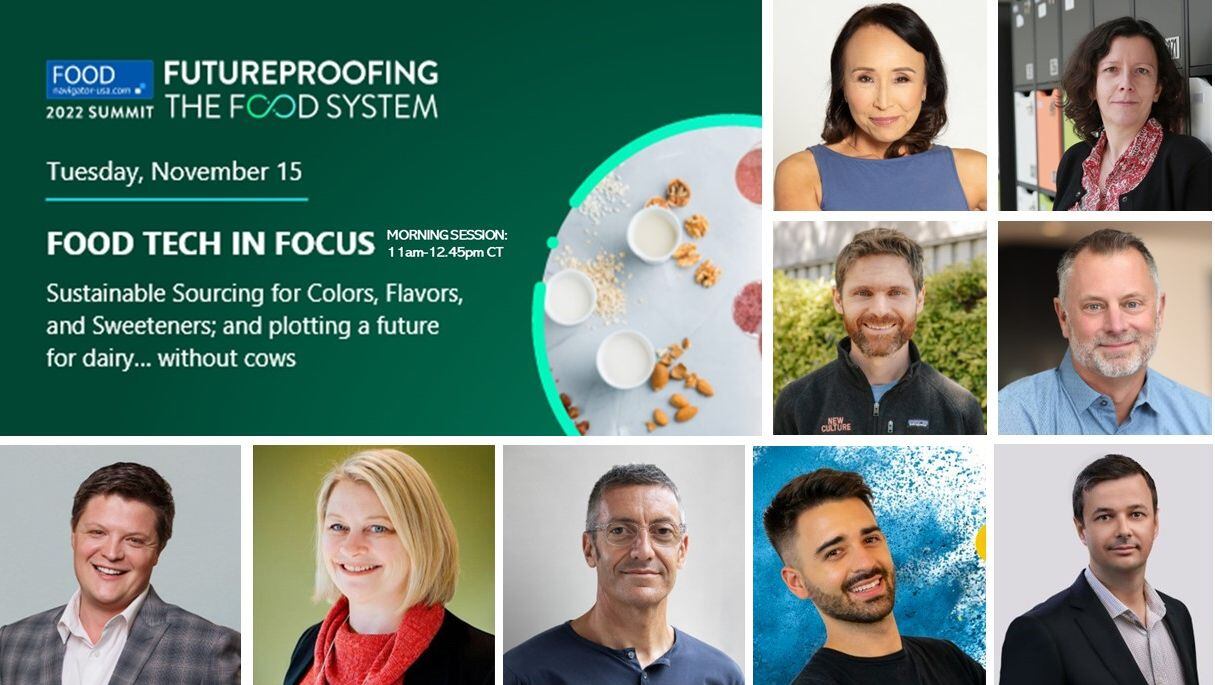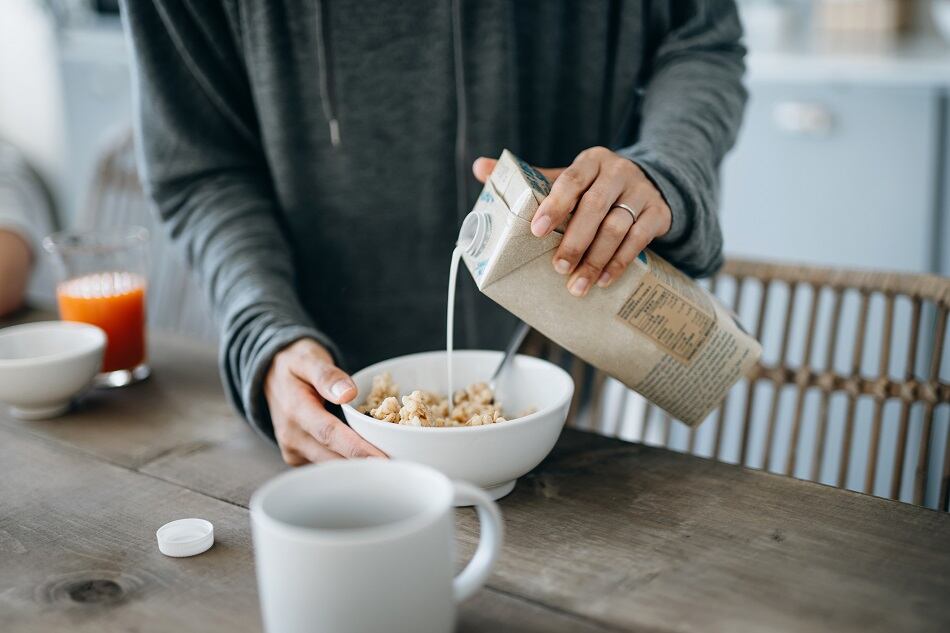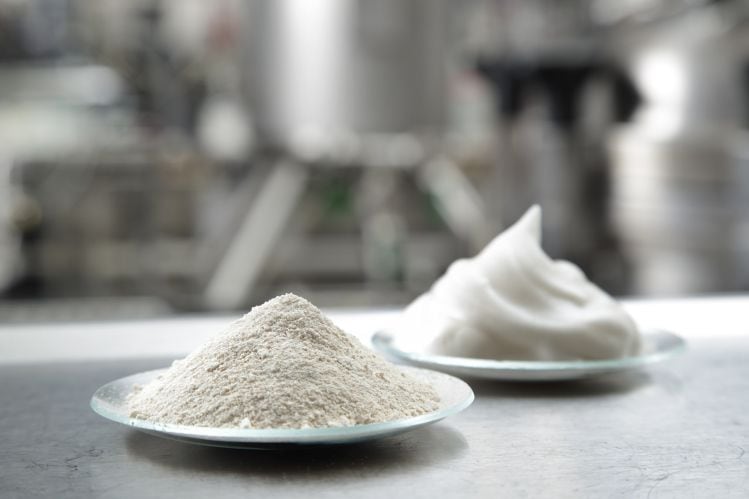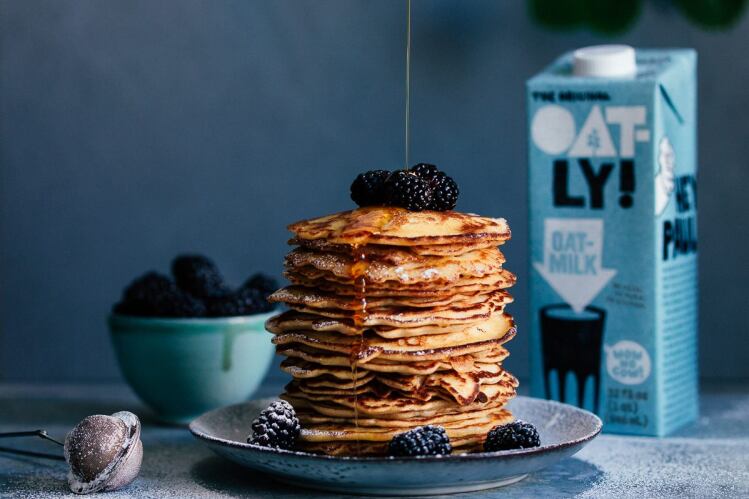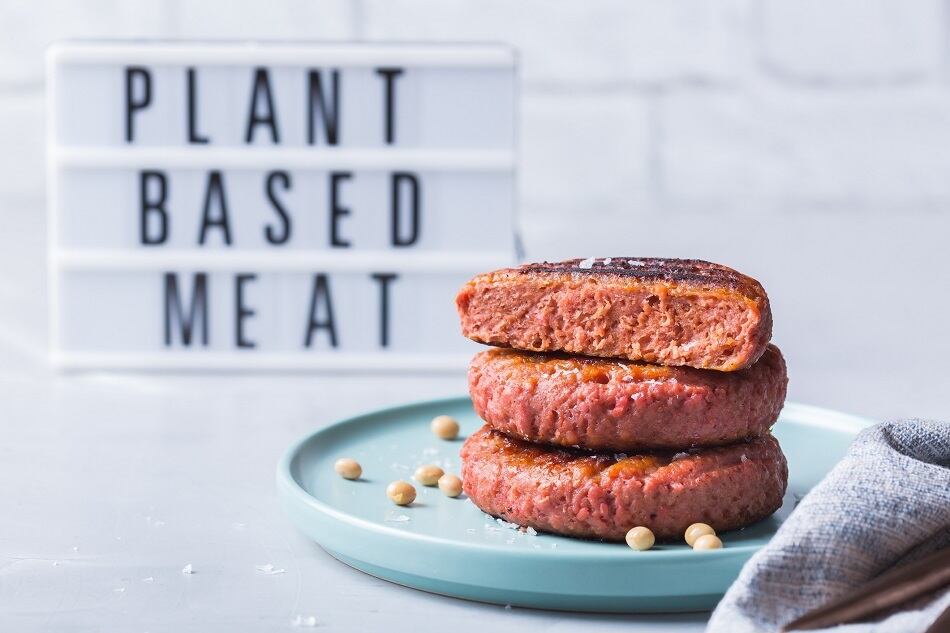Seeking to pinpoint consumer consumption behavior and attitudes around plant-based dairy, Cargill conducted two surveys over one year apart with baseline research completed in February 2021 and a follow-up survey completed in July 2022.
Results from the survey showed that fewer consumers reported following a vegan or vegetarian diet (9% in 2022 vs. 14% in 2021) and an even larger dip was seen in the number of consumers actively avoiding animal-based dairy products (<30% in 2022 vs. 40% in 2021).
At the same time, consumption of plant-based dairy products increased during the 17-month period.
According to its survey data, six in ten consumers reported a jump in plant-based dairy consumption when asked in July 2022 with plant-based milk as the main driver of purchases.
“Clearly, there’s a growing swath of plant-based dairy consumers who are open to both categories. Look in their refrigerator, and they may have conventional milk and a plant-based alternative sitting side-by-side,” said Mark Fahlin, business development manager for Cargill.
“It’s further evidence of just how mainstream the plant-based dairy movement has become.”
Consumers also showed a heightened interest in other products within the broader plant-based dairy category. Half of shoppers said plant-based ice cream was a likely future purchase, while a third indicated plant-based cheese might soon be on their shopping list, according to the survey.
“More so than other plant-based sub-categories, we’ve seen purchases of one plant-based dairy product open the door for shoppers to trial another segment. Plant-based milk is a common starting point, and often serves as a gateway to plant-based ice creams, creamers and more," added Fahlin.
Animal-based dairy perceptions
While the research found strong interest for plant-based dairy products overall, it did highlight a few areas where consumers perceive traditional dairy products still hold an advantage.
Nutritionally, more consumers rated animal-based dairy as a better source of protein, calcium and vitamin D. The survey also revealed opportunities remain to close the perceived texture gap between plant-based and animal-based products. Four in 10 (37%) consumers said they prefer the texture of animal-based products, while less than one in three (26%) favored that of plant-based offerings.
These consumer perceptions highlight opportunities for plant-based manufacturers to improve the nutrition of their products through plant-based ingredients such as the company's PURIS 2.0 pea protein solution, noted Fahlin.
"PURIS 2.0 can be used at higher concentrations without diminishing product quality, enabling brands to address consumer demand for plant-based dairy alternative formulations with significantly higher protein levels, while also offering improved texture and flavor."
Interested in plotting the future of dairy... without cows?
Interested in plotting the future dairy... without cows?
Check out the opening segment of our upcoming Futureproofing the Food System virtual summit
MORNING SESSION: Sustainable Sourcing for Colors, Flavors, and Sweeteners; and plotting a future for dairy… without cows (11am- 12.45pm Central time, Tues November 15)
PANEL: Biosynthesis: Fermentation and the future of flavors, colors and sweeteners Does it always make sense to extract flavors, colors, sweeteners and other food ingredients from plants if you can produce them more efficiently - and more sustainably – via microbial fermentation, ‘cell-free’ approaches or plant cell culture?
- Dr Joshua Britton, founder and CEO, Debut Biotech
- Nusqe Spanton, founder and CEO, Provectus Algae
- Dr David Welch, CSO and co-founder, Synthesis Capital
- Ricky Cassini, CEO and co-founder, Michroma
- Dr Erin Marasco, global biology lead, Cargill
- MODERATOR: Elaine Watson, senior editor, FoodNavigator-USA
PANEL: Dairy 2.0: Plant-based milks now account for more than 15% of the fluid milk market, while plant-based cheese, creamers, yogurts and ice cream continue to gain traction. So where is the market going next, where’s the white space in the category, and what is the potential of a new wave of ‘animal-free dairy’ products made with real milk proteins and fats, minus the cows?
- Miyoko Schinner, founder and CEO, Miyoko’s Creamery
- Dave Ritterbush, CEO, Califia Farms
- Matt Gibson, co-founder and CEO, New Culture
- Sonia Huppert, global innovation marketing leader, re-imagine protein, IFF
- MODERATOR: Elaine Watson, senior editor, FoodNavigator-USA
